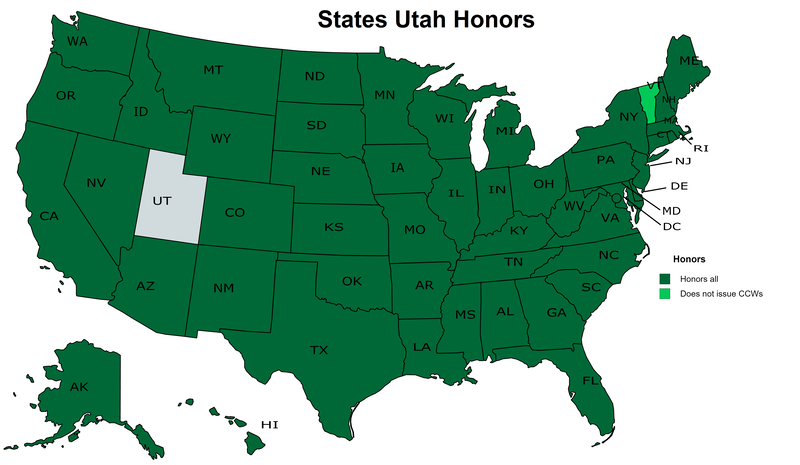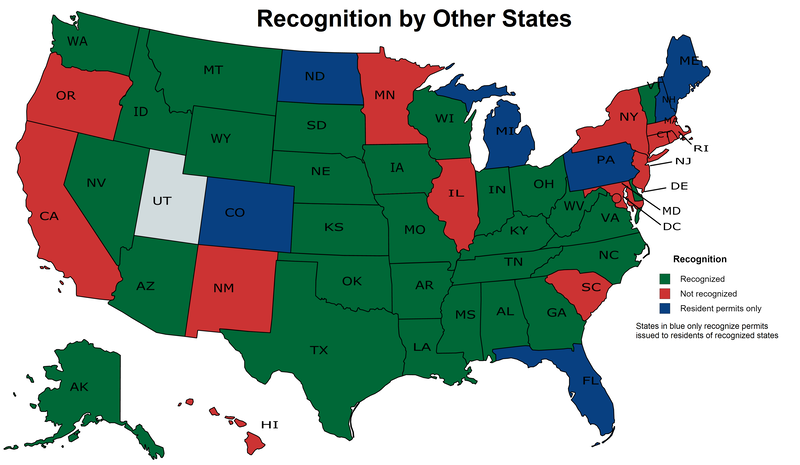Utah
The individual right of the people to keep and bear arms for security and defense of self, family, others, property, or the state, as well as for other lawful purposes shall not be infringed; but nothing herein shall prevent the Legislature from defining the lawful use of arms. (Article 1, Section 6, Utah Constitution)













